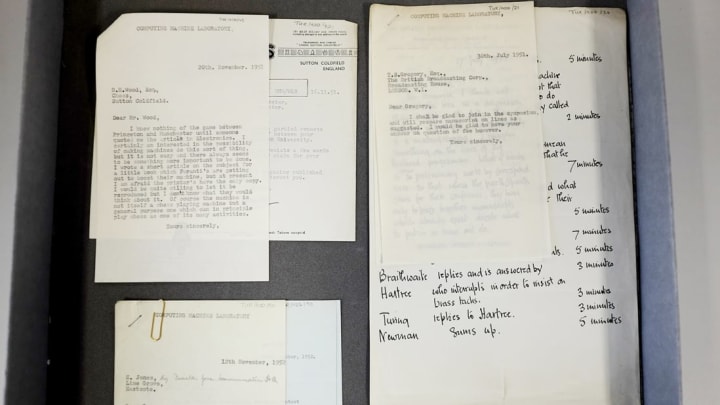You never know what you’re going to uncover when you finally get around to combing through that decades-old filing cabinet in the back room. Case in point: The University of Manchester recently unearthed 148 long-lost papers belonging to computer science legend Alan Turing, as ScienceAlert reports.
The forgotten papers mostly cover correspondence between Turing and others between 1949 and his death in 1954. The mathematician worked at the university from 1948 on. The documents include offers to lecture—to one in the U.S., he replied, “I would not like the journey, and I detest America”—a draft of a radio program he was working on about artificial intelligence, a letter from Chess magazine, and handwritten notes. Turing’s vital work during World War II was still classified at the time, and only one document in the file refers to his codebreaking efforts for the British government—a letter from the UK’s security agency GCHQ. The papers had been hidden away for at least three decades.

Computer scientist Jim Miles found the file in May, but it has only now been sorted and catalogued by a university archivist. "I was astonished such a thing had remained hidden out of sight for so long," Miles said in a press statement. "No one who now works in the school or at the university knew they even existed." He says it’s still a mystery why they were filed away in the first place.
The rare discovery represents a literal treasure trove. In 2015, a 56-page handwritten manuscript from Turing’s time as a World War II codebreaker sold for more than $1 million.
[h/t ScienceAlert]
